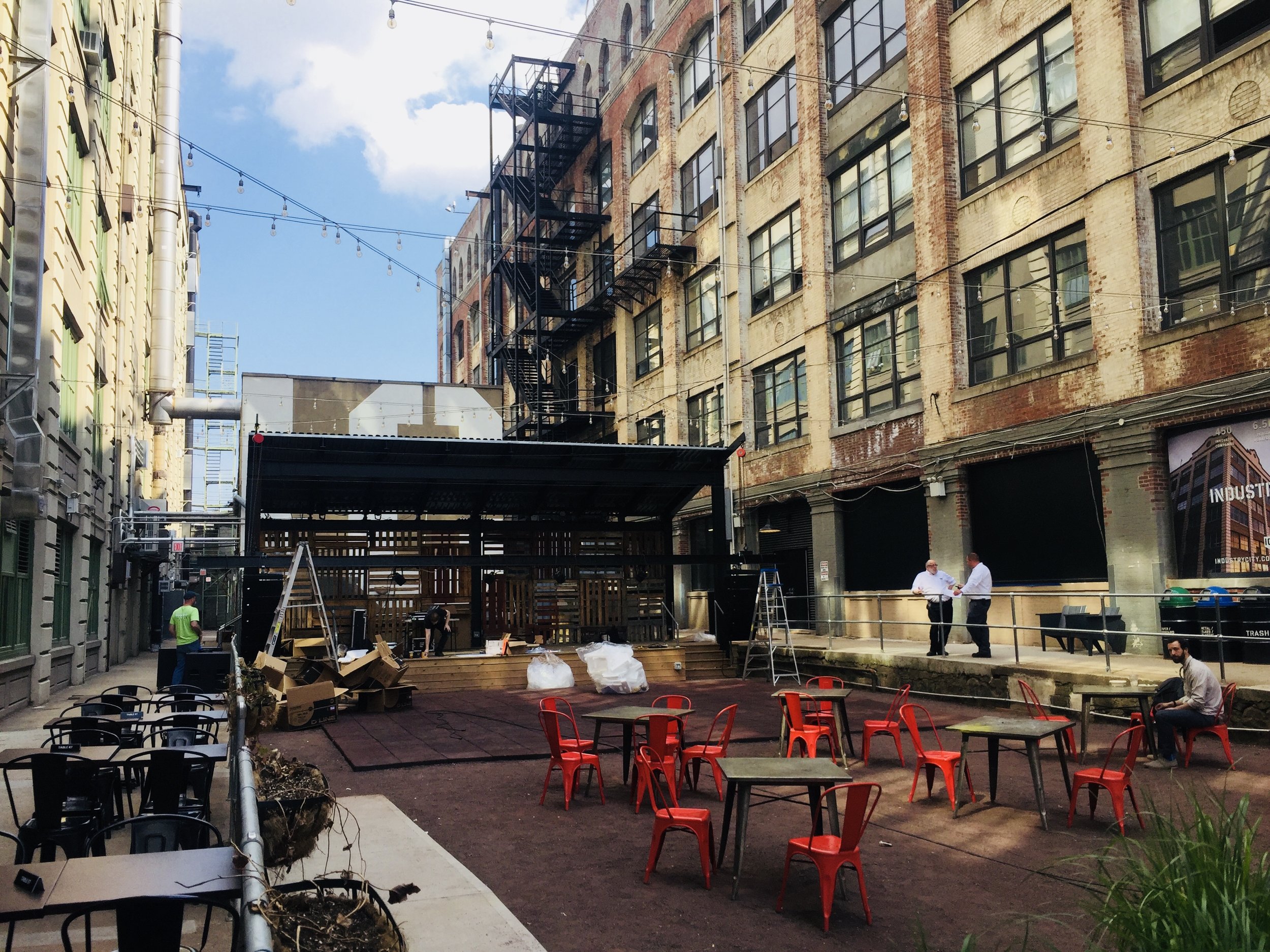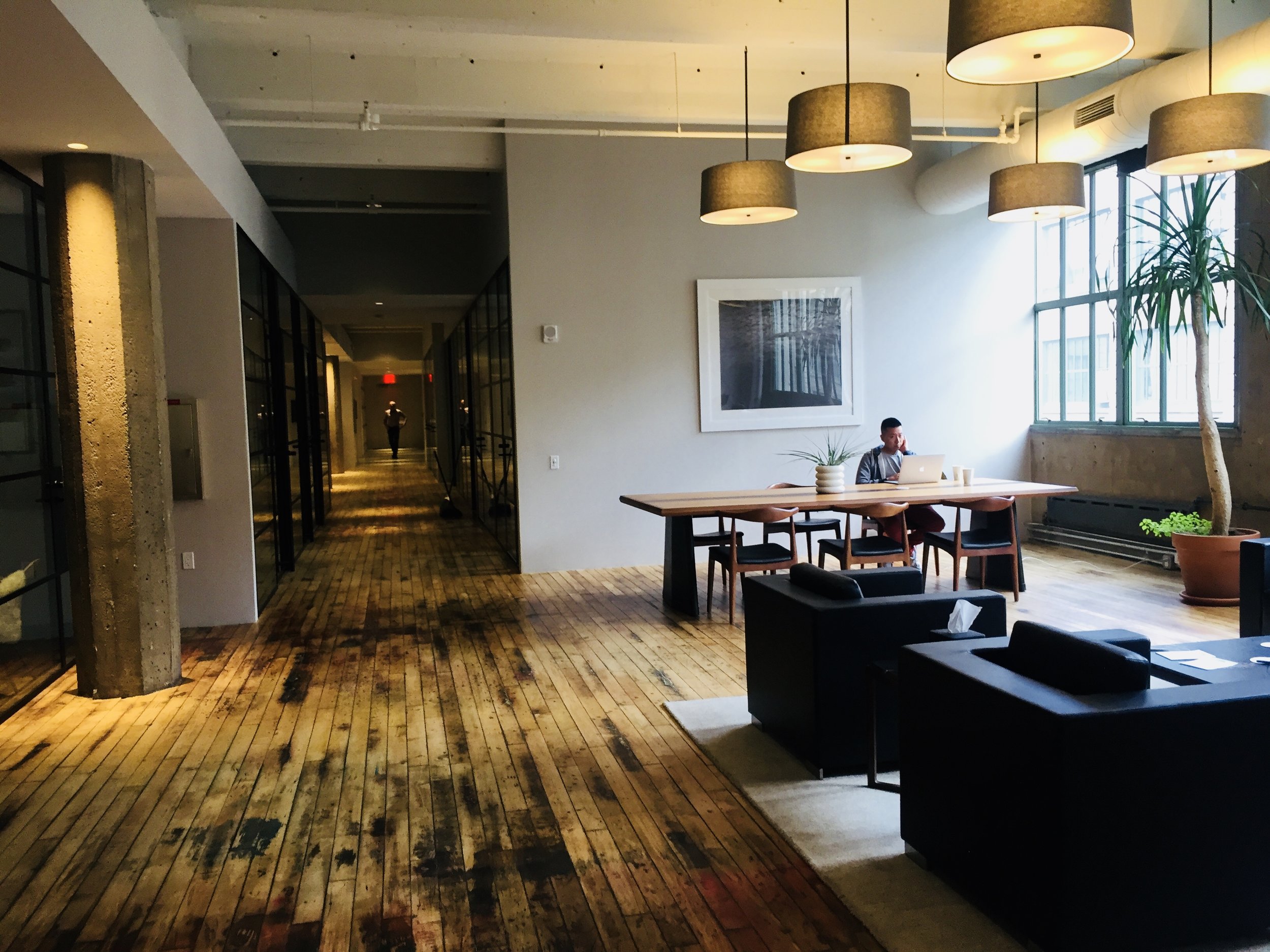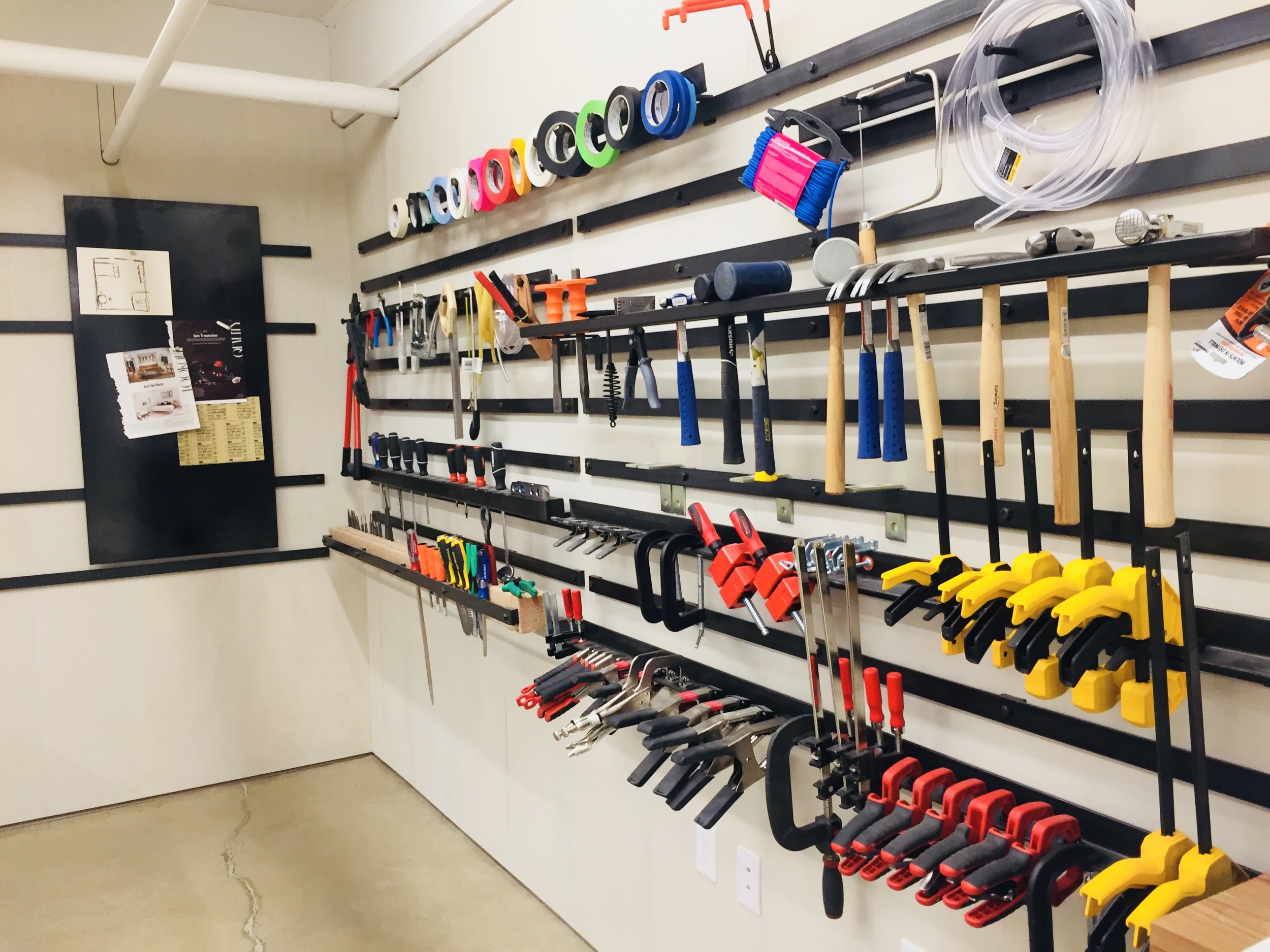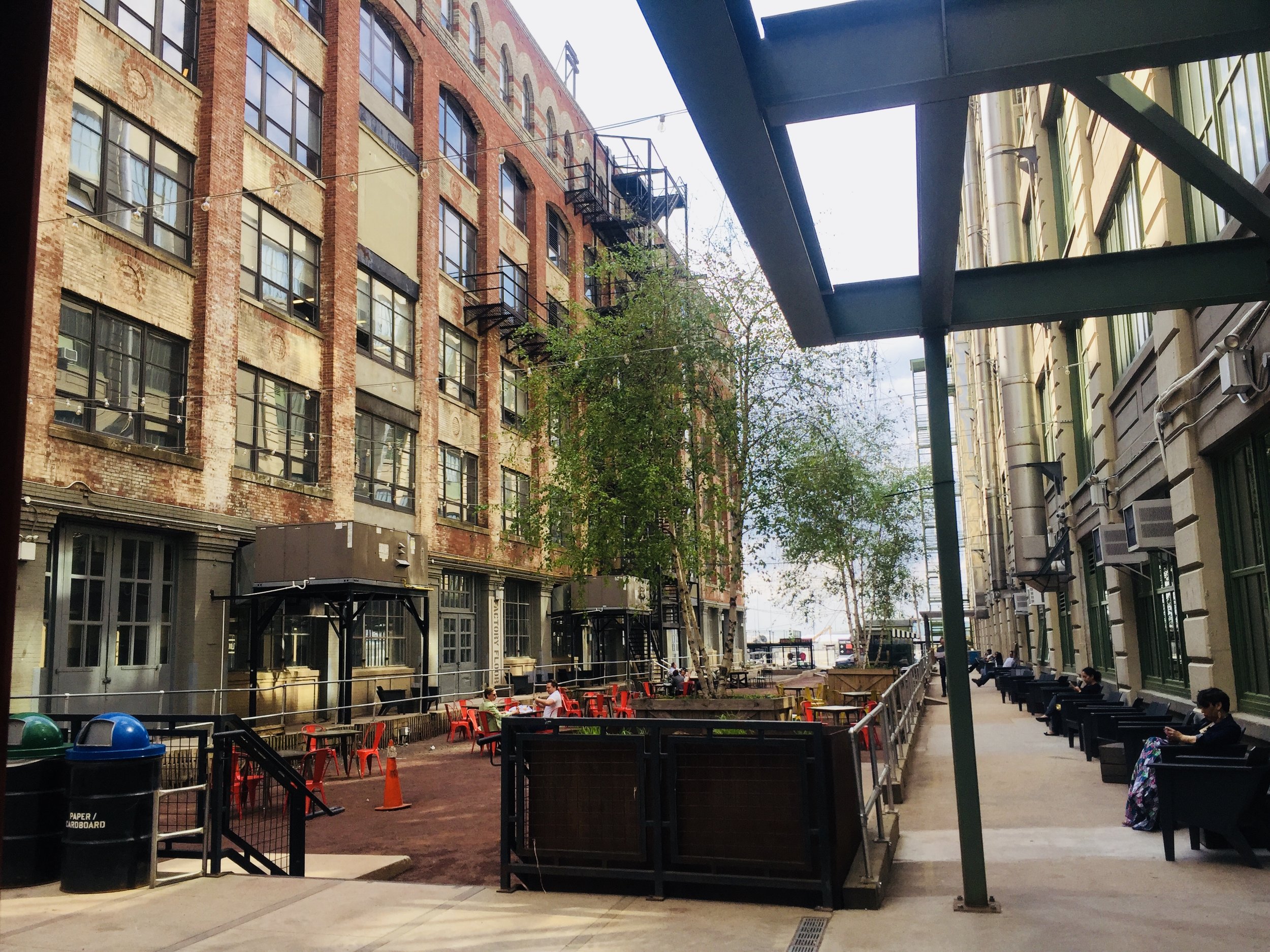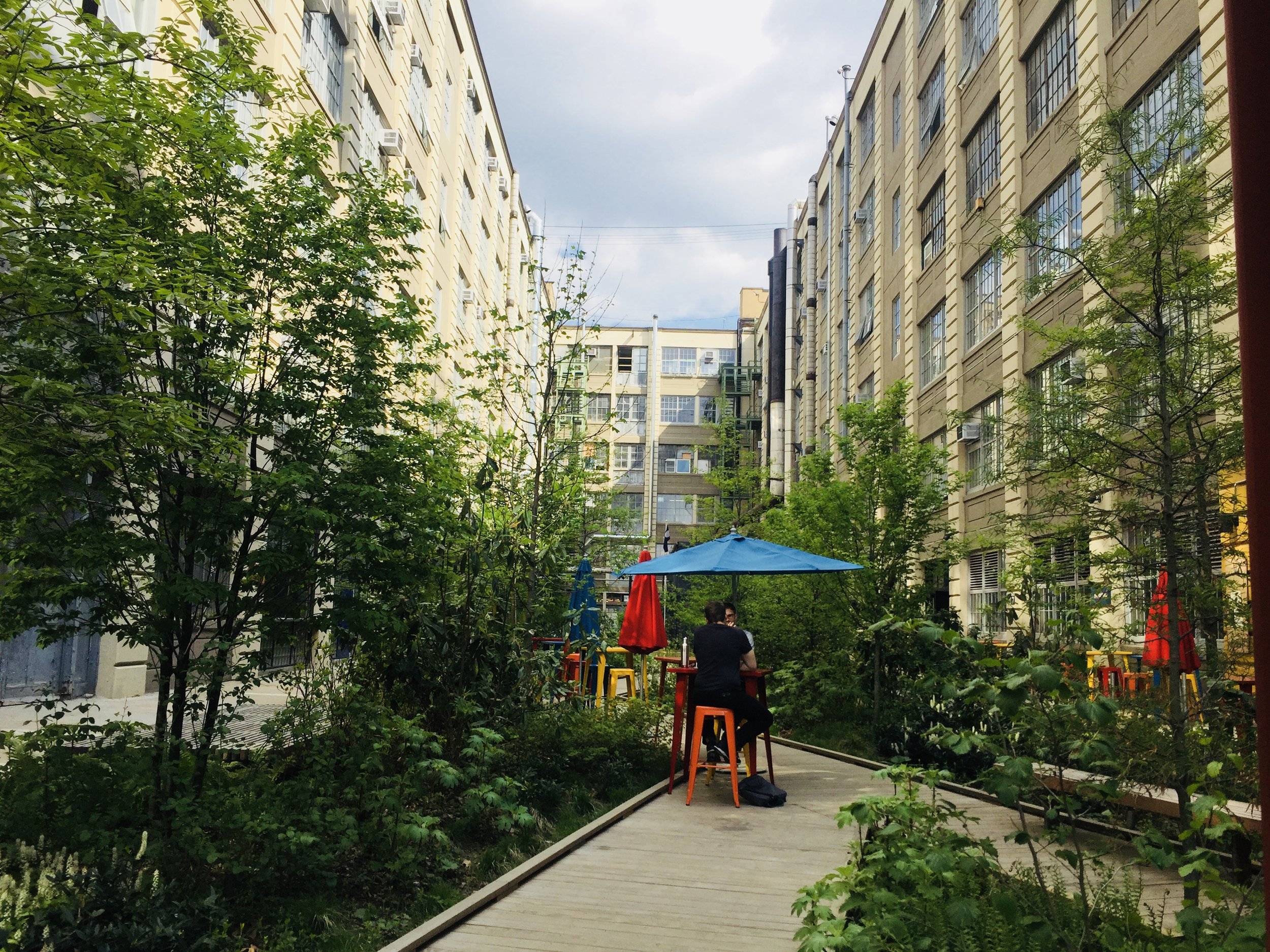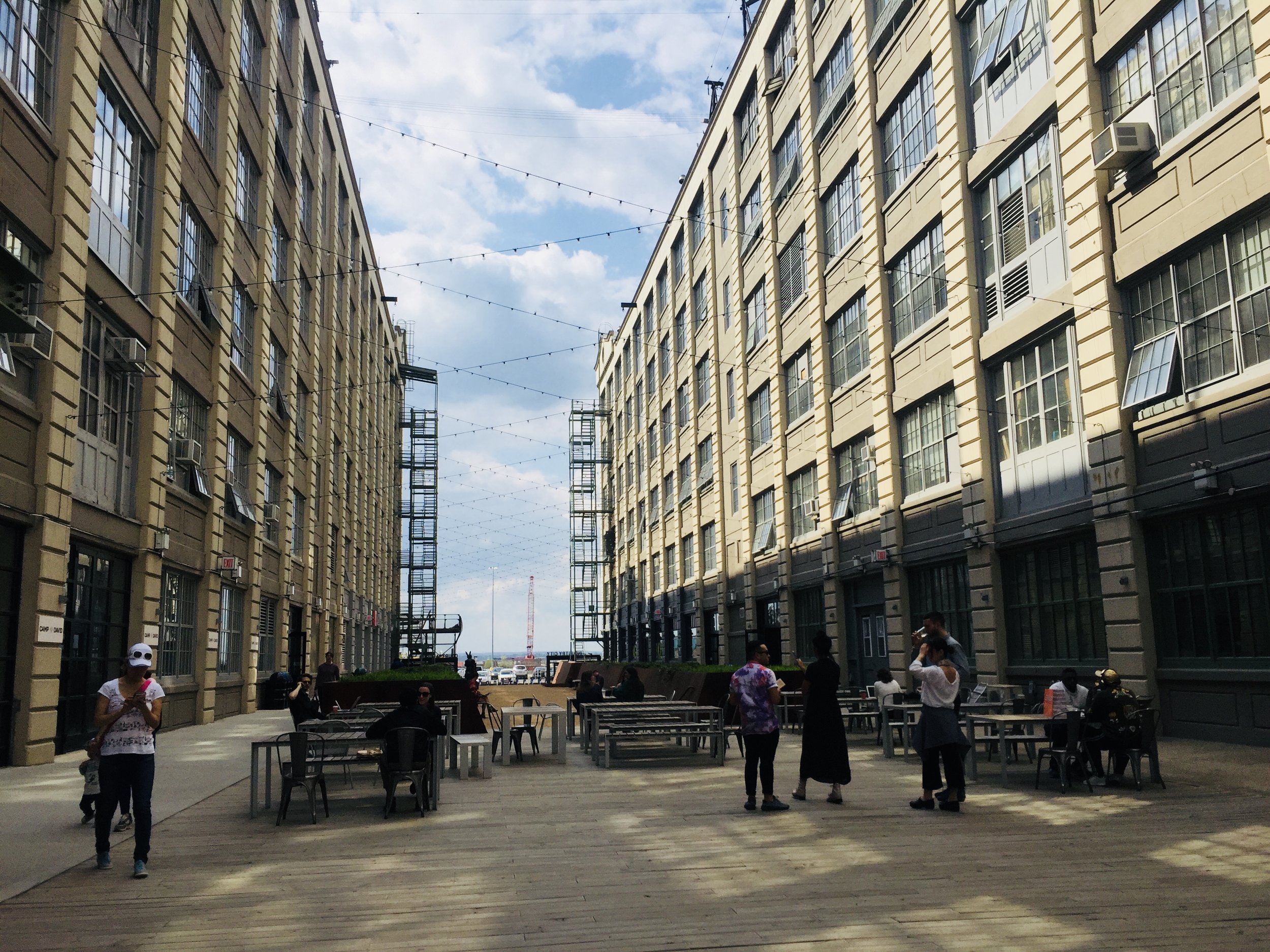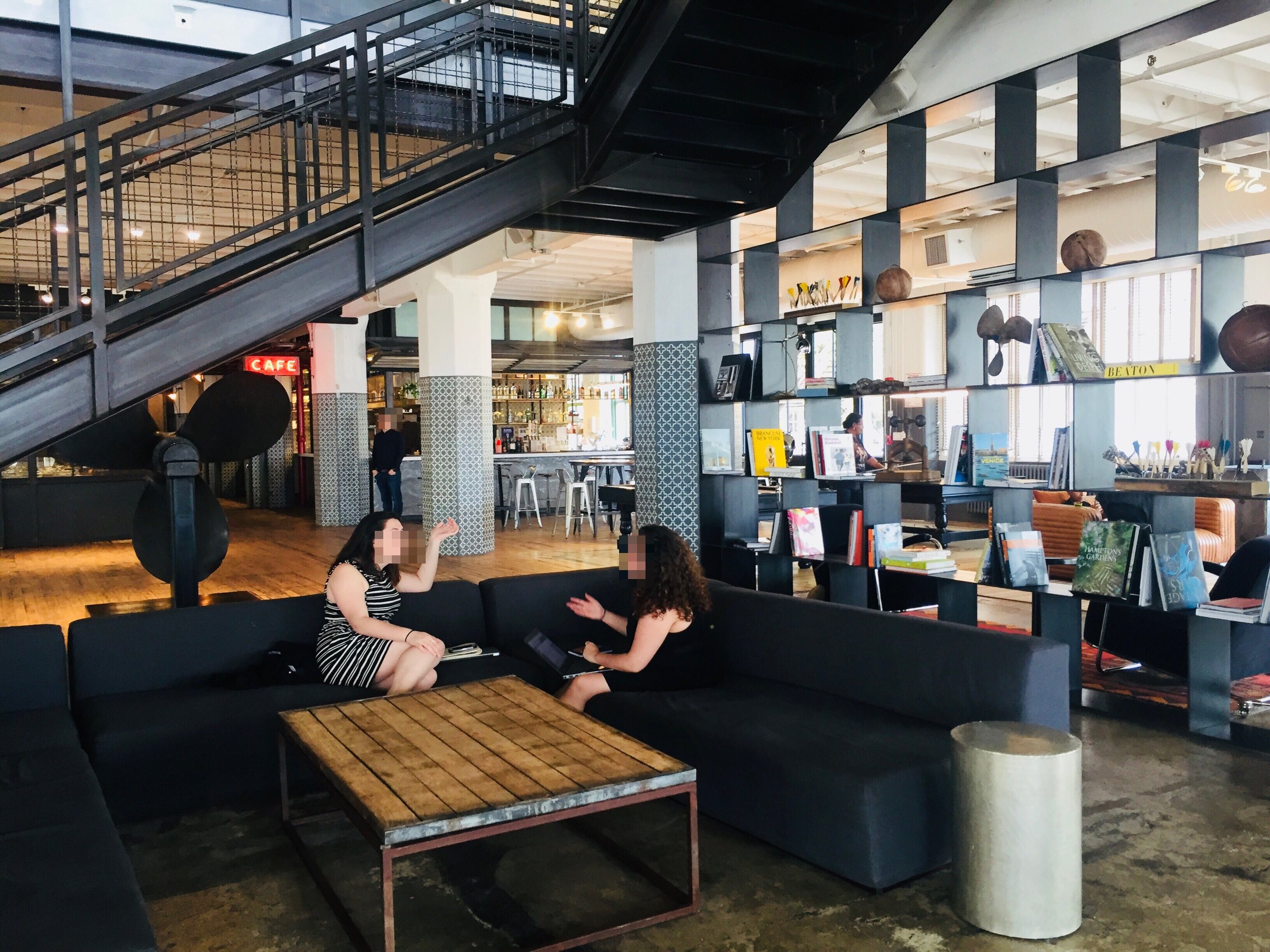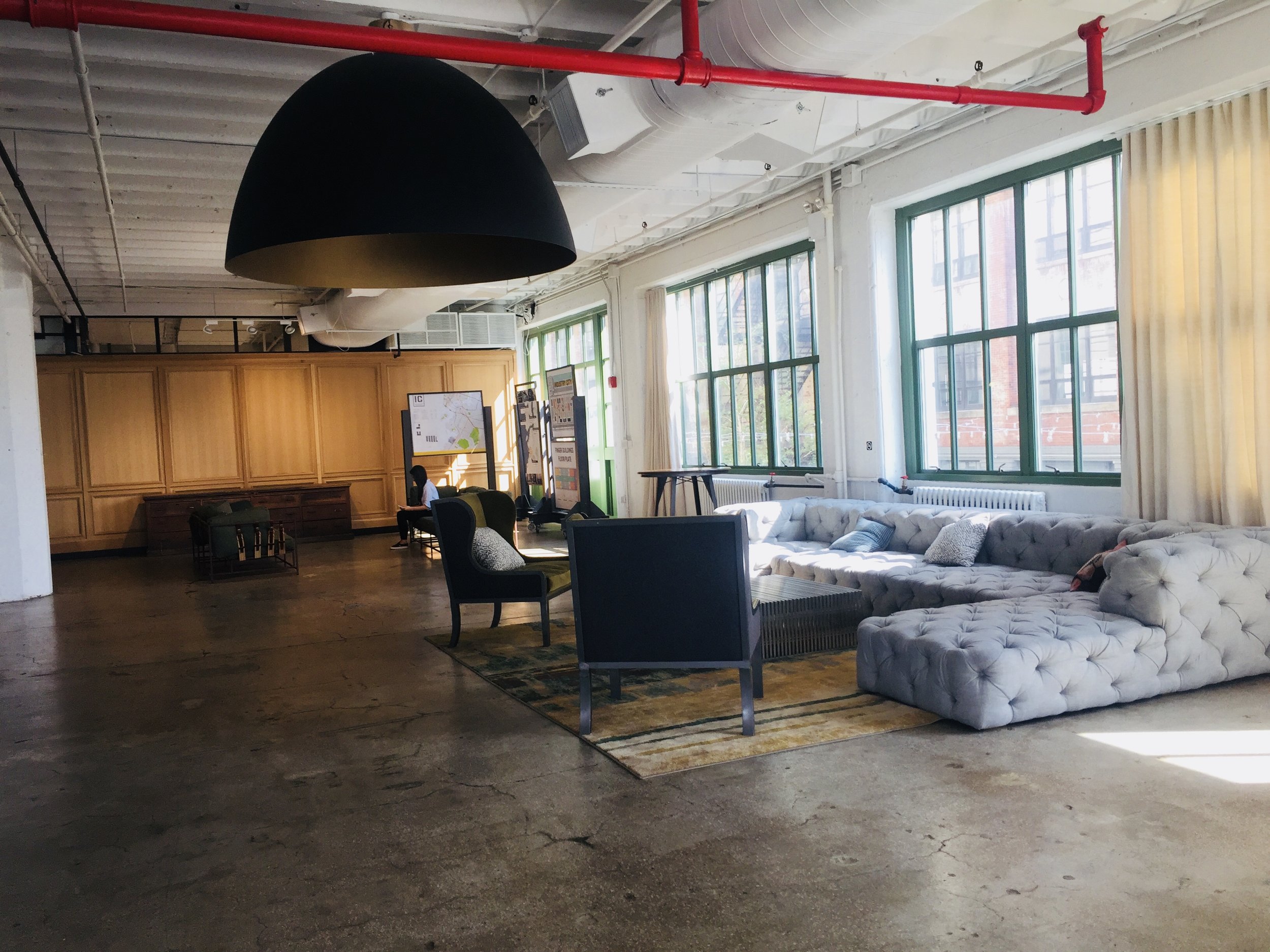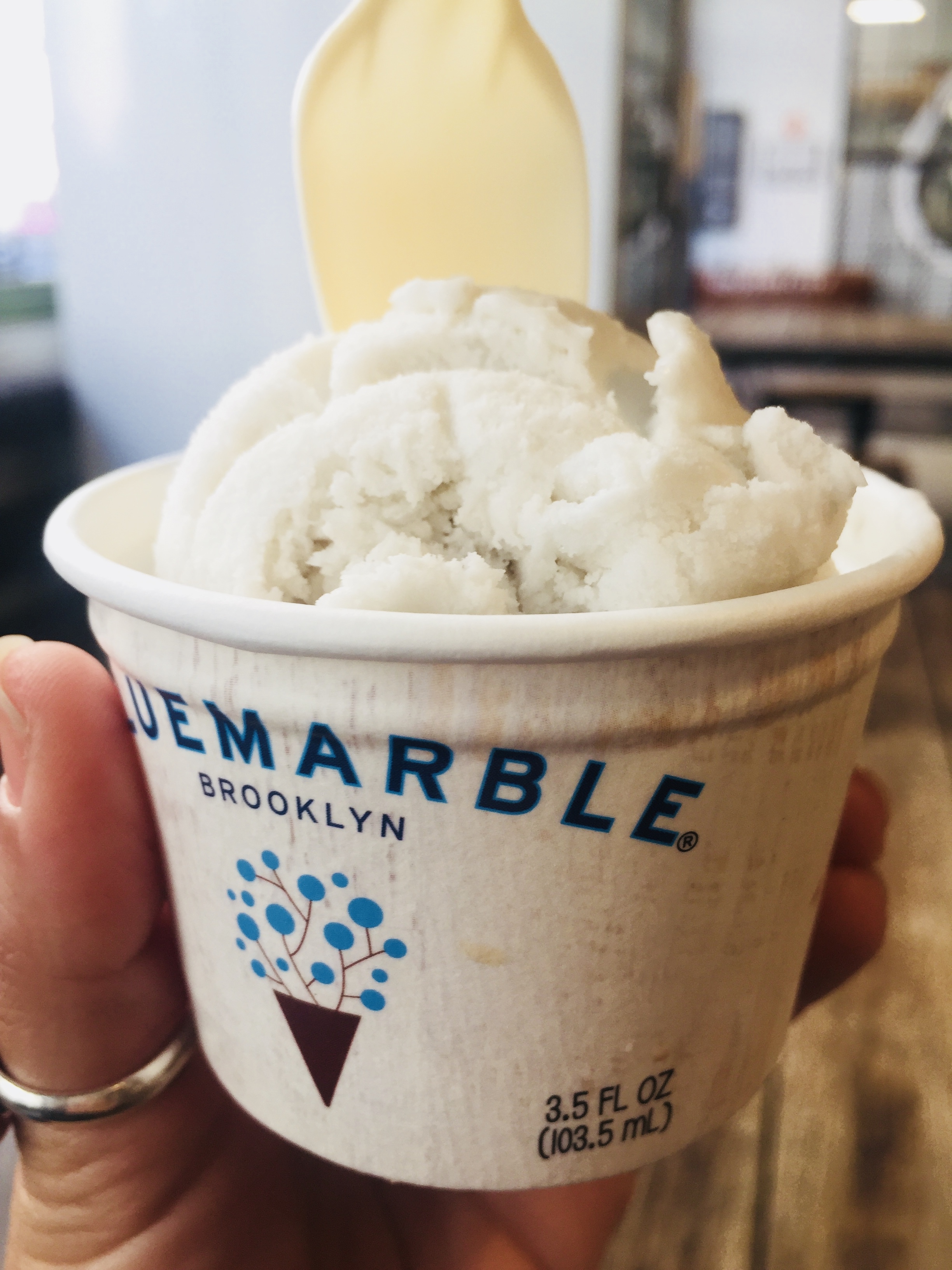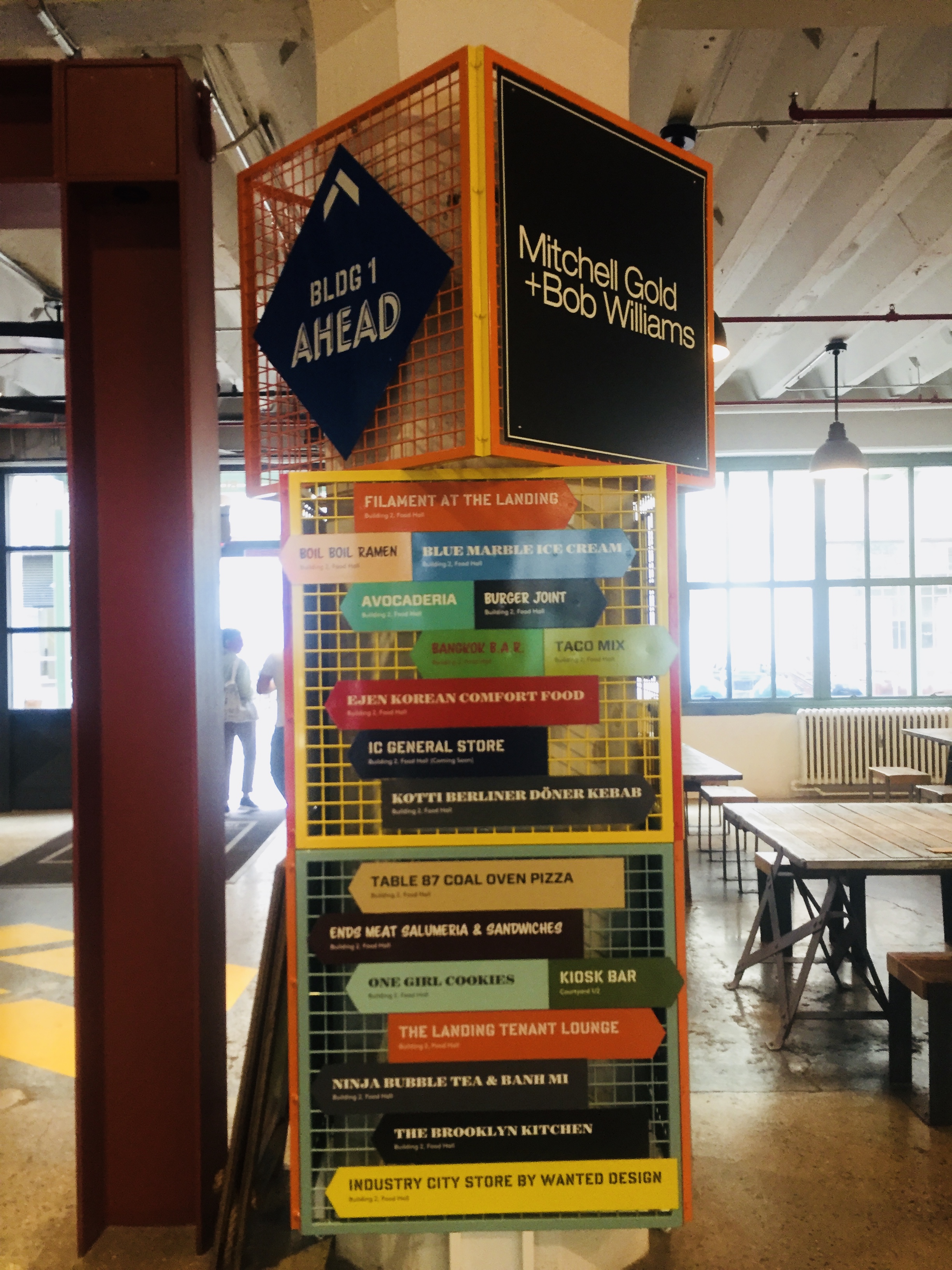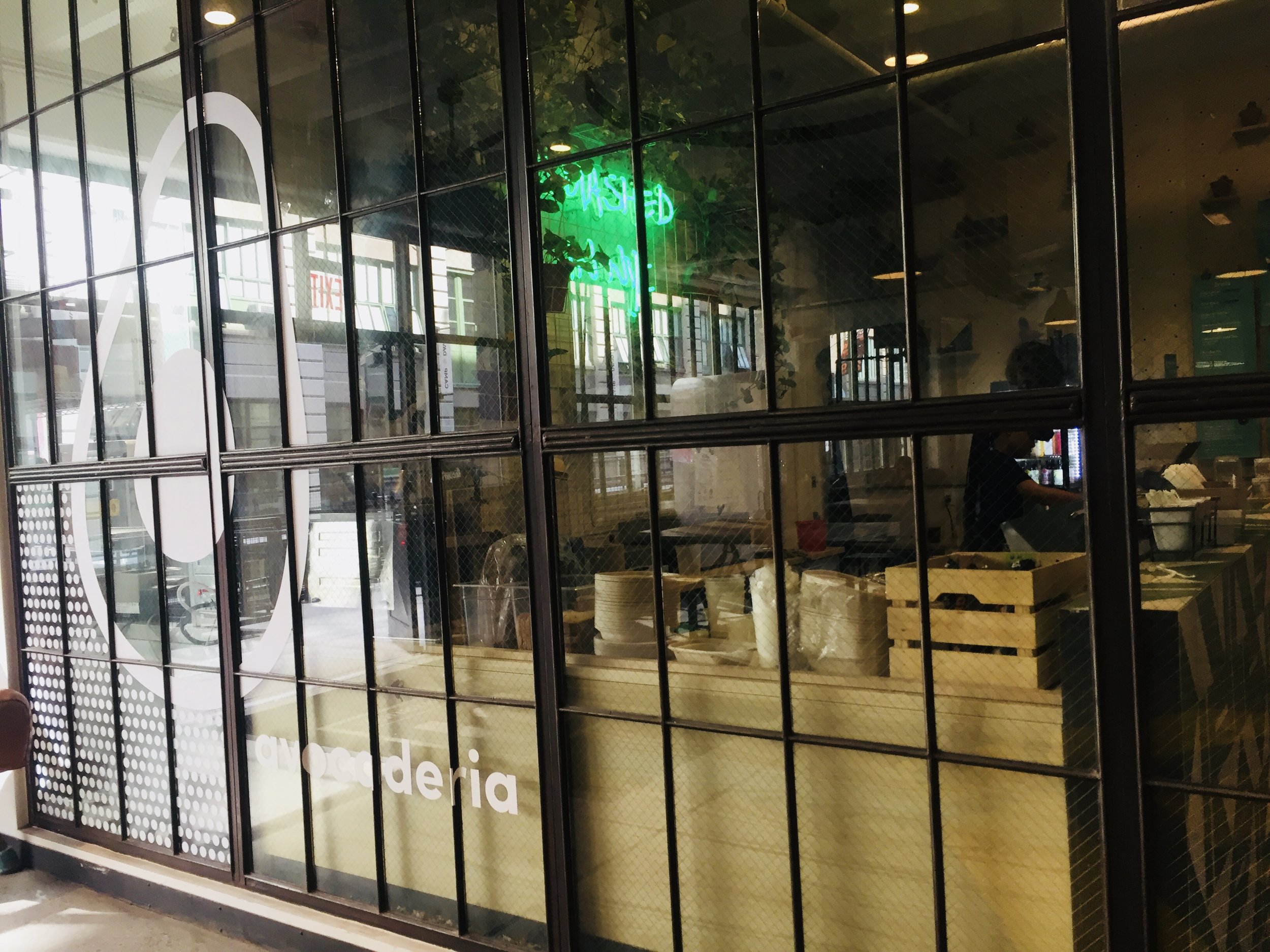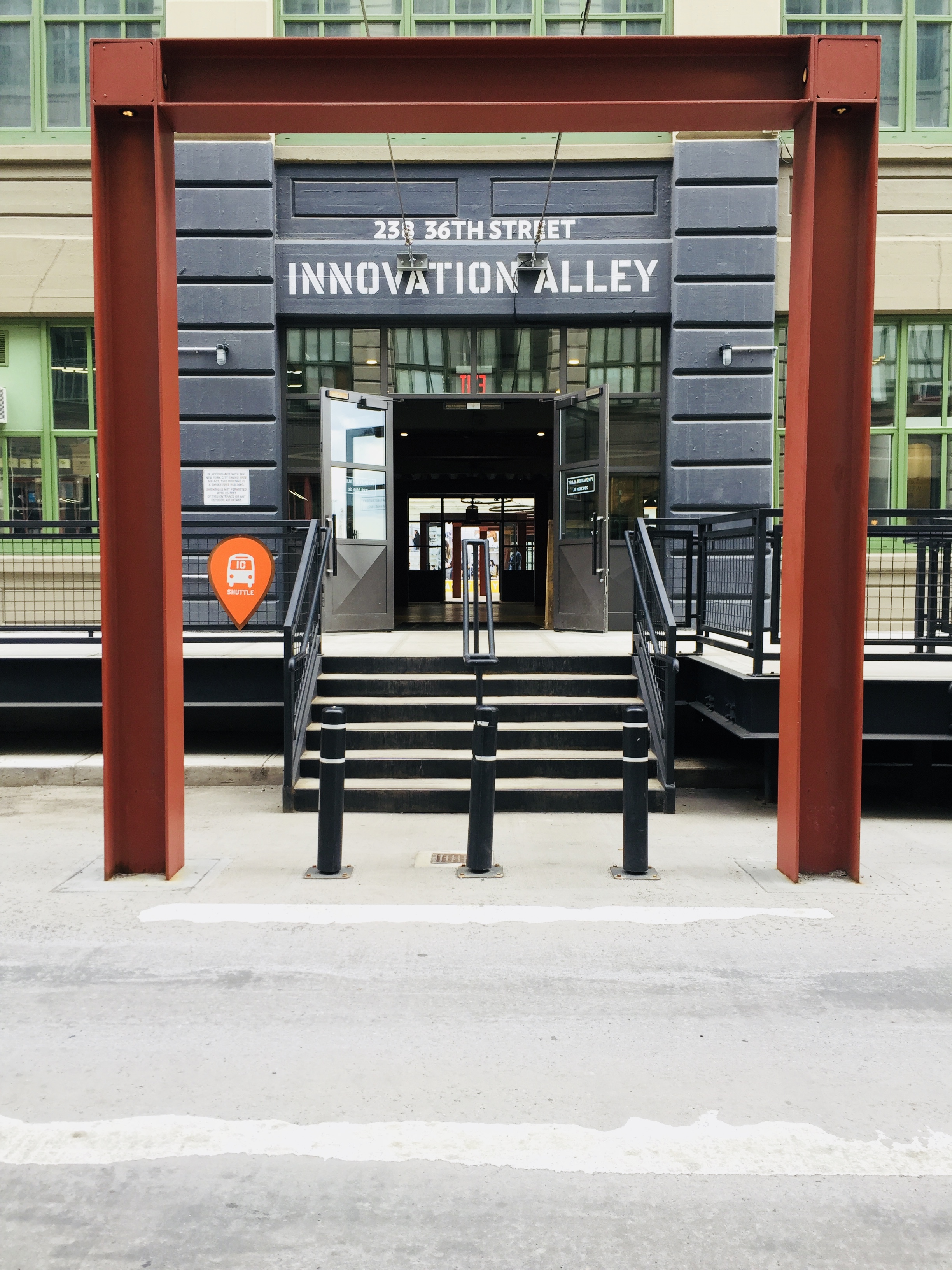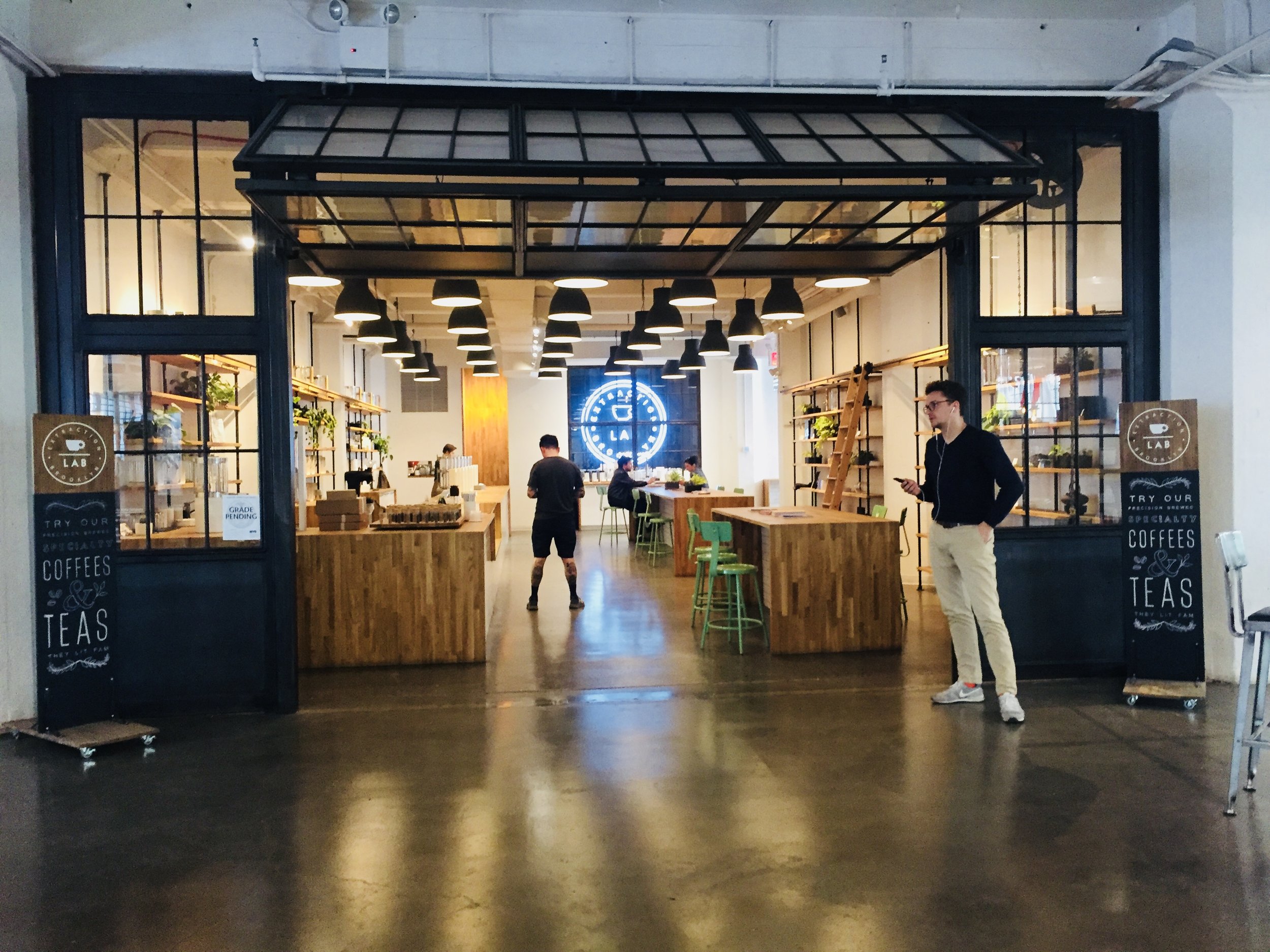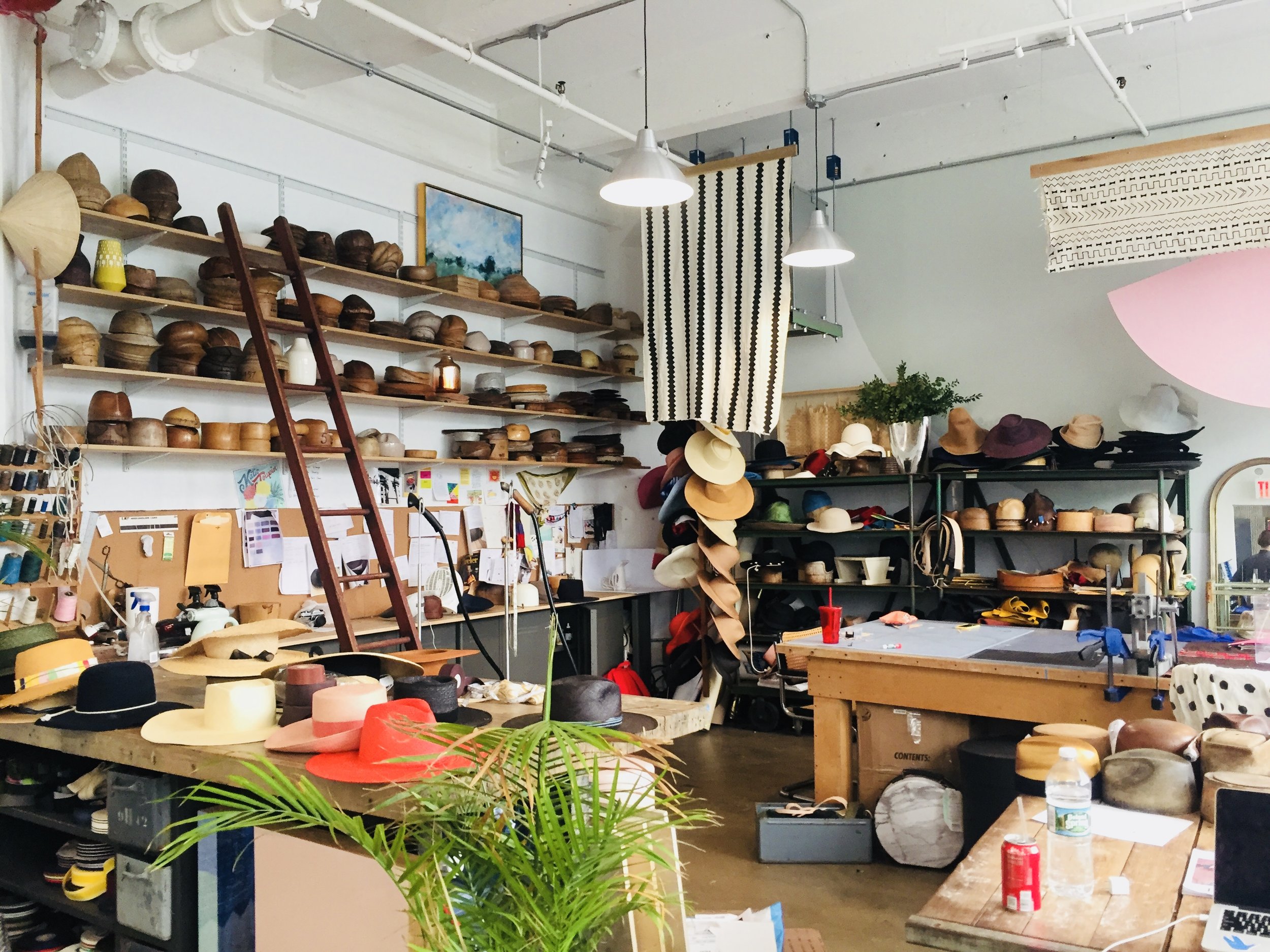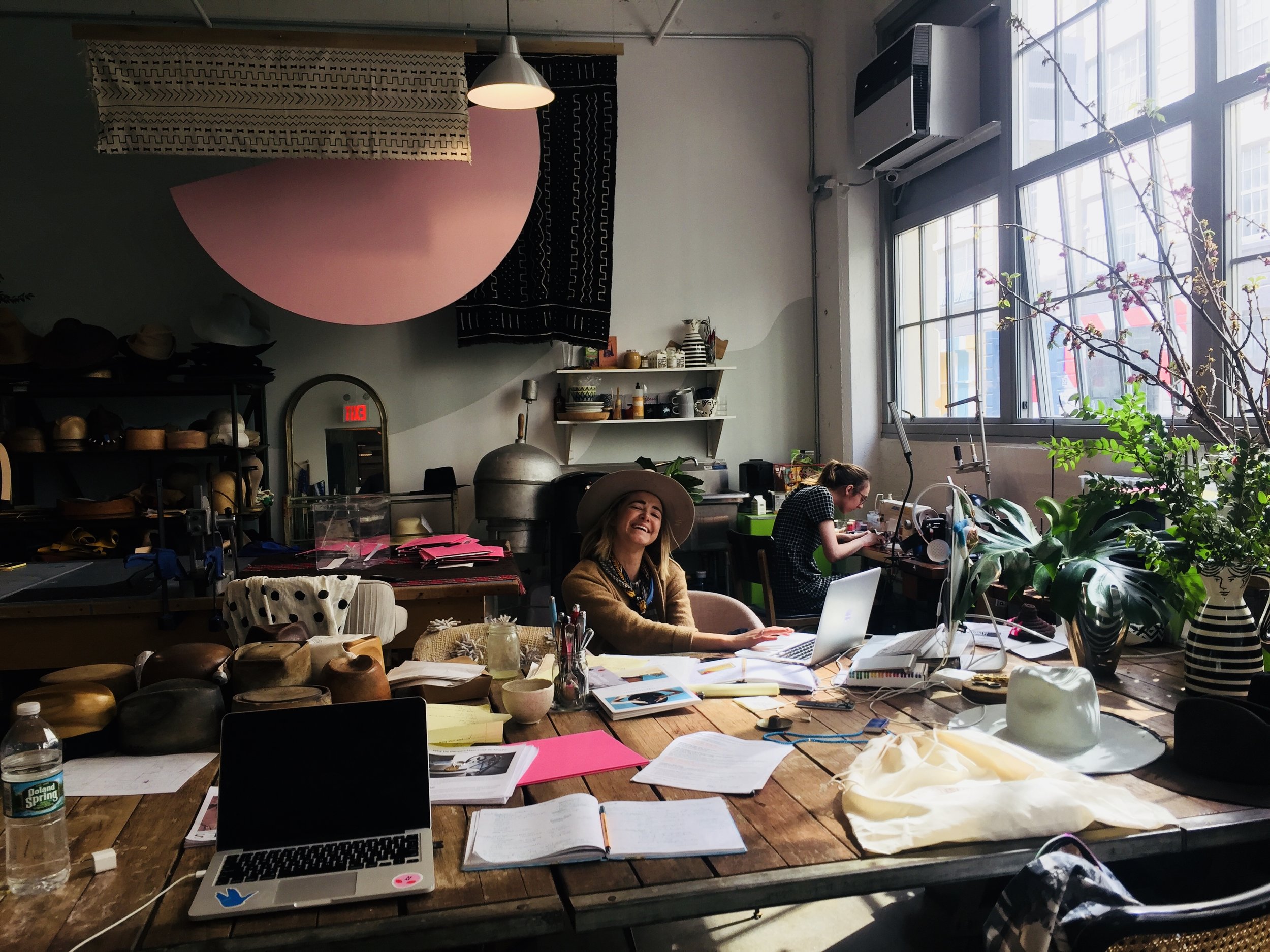Making Places: From Ghost Town to Industry City
Industry City open space
An industrial complex from the late 19th century, Industry City began as a monumental intermodal manufacturing, warehousing and distribution center in Sunset Park, Brooklyn.
Its 35 acres held consistent traffic of 25,000 daily workers and sailors throughout the 20th century, which turned Brooklyn into a major international seaport. It became relevant even before the Statue of Liberty popped up right in front of it, granting it a generous view.
However, around the 1960’s, the decline of urban manufacturing turned Industry City into Ghost Town.
In 2013, something changed.
Walking by Industry City, today, you’ll find yourself surrounded by well-designed spaces and trending F&B outlets.
A favorite organic ice-cream brand. A shark-tank winner. A coffee shop which sells the art and science of coffee making, along with your usual cup. A chocolatier. A vibrant coworking space. A hat maker. And more. According to its sources, in the last two years, the entire space “has leased more than two million square feet of space.”
Currently, it hosts 4,500 people and 400 companies.
What happened? Let's take a look.
A Vibrant Crowd
A US$1bi investment led by Belvedere Capital and Jamestown kickstarted the movement of revitalization. The wide spaces, previously used for manufacturing, turned into beautifully designed office spaces, retail and F&B outlets.
One of its tenants, Camp David, is a “mindfully-designed, light-filled co-working community spread across 40000 square feet and three floors”, as very well defined by Design Boom, who rents an office at the space.
I spoke to Erum Khan, Co-Founder and CEO of Soundmind Intelligence Inc., a voice AI startup for senior living, who chose Camp David as her headquarters.
For her, it provides more than an enticing work environment, a community where she can have serendipitous encounters over coffee, bounce ideas with domain experts and even look for talent. "It's more than just desks, it has real innovation vibes, she states.
Pictures of Camp David
Connor Doyle, Membership Manager at Camp David, gave me a generous tour around Industry City and shared a bit of its story as we strolled around. He explained that the space started to get populated around 2014. It grew from a mix of tenants who tool over different areas. Storefronts, F&B lots, and offices.
“The crowd here is predominantly creative. From architects and designers to entertainment companies and digital agencies, including startups,” he explained.
Why Open Spaces?
Walking through the “Innovation Alley,” a corridor which cuts across the six buildings already developed, you’ll find elegant outlets and wide open spaces in between each building.
Well gardened and often decorated with fairy lights, the spaces between are designed for public activities to take place. From sunset yoga sessions to music concerts, these offer the refreshing feeling of a park in the city. People you can sit down for a chat on a bench, attend a concert or play ping pong with strangers.
Pictures of open spaces in Industry City
The whole floor plan offers generous open spaces, between buildings and inside each.
It seems designed for people to bump into each other and make friends.
Broad public areas also take place inside the buildings, with elegantly designed lounge areas with bookshelves, couches and long tables where you can find individuals working on their computers or catching up with others. The spaces also can also cater for private events.
All these open areas take up potential "rental space." In the mind of several real estate developers, that means a waste of money (in the price per square feet measure).
Why does Industry City allow such waste? Or is it an investment?
“That makes people interact here and enjoy quality time outside their offices," says Connor, from Camp David. He adds: "when they participate in the community, they feel like staying longer.”
Undoubtedly, the ping pong table takes space from a few office desks, which means you are not monetizing on those.
However, it allows individuals to come for coffee and have a serendipitous ping pong session with strangers who might become friends. Eventually, they could become business partners.
Industry City demonstrates that space optimization isn’t about profiting from every inch of your space. It's about making it livable as a whole.
It is a concrete example of a holistic approach to real estate, where business and design share one goal: livability.
The result is concrete in the number of jobs created, which “increased from 1,900 jobs to 4,500” according to Industry City’s CEO, Andrew Kimball in an interview with 6sqft. Kimball adds that “$125 million has been invested in the campus and provides tenants with five acres of open space to socialize”.
Here to Stay
A robust tenant-first philosophy is the foundation of Industry City’s success. In the same interview, Kimball explains that tenants “create the environment that draws others; they’re the reason to drive investment, and they are writing a narrative that tells the story of a new economy.”
Besides of different industries, each tenant shares a taste for innovation and creativity, turning the space into a lighthouse for a variety of like-minded companies and individuals.
Amongst its F&B outlets, you can find the very trendy Avocaderia, given $400,000 in February as a Shark Tank winner. In the office spaces, you’ll find that ClassPass, a well-known startup, has set base on Industry City, purchasing a studio from where they will live stream classes to their users.
Tenants from Industry City
Back to manufacturing, you might bump into Teressa Foglia's beautifully designed den. A hat designer and maker, her office reflects the passion for uniquely crafted pieces.
Teressa's shop caught my eyes.
Pictures of Teressa Foglia's office
Connor offered an intro to the founder. I walked shyly into the shop, as he introduced me to this bright young woman working hard and focused on her desk. She stopped for a minute to greet us with a bright smile. It felt like we were visiting friends.
I asked, "why Industry City"? She explained that, in 2017, she decided to venture into her passion and found, there, a place and a community that captured her creative spirit.
“It feels like an adult college campus for me; it’s like we’re family,” says Teressa, founder, designer, and maker of hats.
“I still live in West Village, Manhattan, but I’d move here if I could; I even slept in my office yesterday," she adds, pointing us to the couch by the wall.
For those who aren’t familiar it, West Village is an acclaimed neighborhood, famous residence to artists, designers, creatives and, of course, for Carrie Bradshaw (from Sex and The City).
The fact that someone like Teressa feels like moving from a favorite spot in Manhattan to Industry City, Sunset Park, Brooklyn, is a relevant indicator that it has become a success story.
Making a Place
From a former ghost town in Brooklyn to a place that is stealing hearts from West Village tenants. In only four years.
What is the secret sauce to Industry City?
When people decide to stay, it means success. We are talking about places, but we could be talking about customer loyalty for consumer brands. Same principle.
The best marketing strategy isn’t one which only attracts people to a place (physical or virtual) because it is cool or Instagrammable. It is one which goes beyond attraction, giving them consistent reasons to be back. These reasons vary. It could be a trendy coffee shop, great music concerts or yoga sessions happening every weekend, or even the fact you have friends staying there.
One day, people decide to come and stay. That defines success.
You don’t need to be a real estate expert to agree that it takes a considerable commitment from someone to choose a place for long-term. Either as commercial or residential location.
The place where you stay defines you. Your address becomes part of your identity. Good tenants come with a ripple effect. They serve as a lighthouse which attracts the right people, drawn to the same values.
It is a big win that Teressa Foglia, ClassPass, Avocaderia, Soundmind and several trendy brands of creatives, startups, and manufacturers chose Industry City as their headquarters.
As a relatively new development, the question remains on their success depending on the very tenants who are taking over new office spaces and storefronts.
The future is promising, but always uncertain. Time will tell.
For now, I can’t stop thinking that Industry City was born as a thriving place which turned Brooklyn into an international reference. It seems to be living by its name, again.
Reference Links:
Industry City: https://industrycity.com/
Camp David: https://www.thecampdavid.com/
6sqft interview with Industry City CEO, Andrew Kinball: https://www.6sqft.com/the-success-and-future-of-industry-city-as-told-by-its-innovative-manufacturing-tenants/
Design Boom article about Camp David: https://www.designboom.com/design/camp-david-brooklyn-coworking-industry-city-11-09-2017/
Teressa Foglia: https://teressafoglia.com/
Soundmind Intelligence Inc: http://www.soundmindinc.com/
